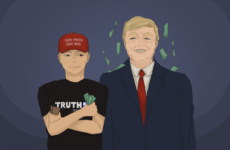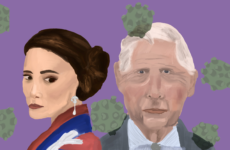Minority communities have strong bonds that are the manifestations of the common experiences of their members. We commonly cite the Black, Hispanic/Latinx, and the LGBTQIA+ communities as prime examples of this phenomenon. However, there exists a beautiful diversity within these communities, along other lines of cultural identification. With that said, not every fragment of a community is benign. The same harmful lines that are drawn out of differences and misunderstandings between racial groups, genders, religions, and the like, are drawn within them. The example that has affected my life, and that can be projected to other minority communities, is black elitism.
“Black elitism” is a term used to address classism in the black community, and is typically used to criticize the black upper and upper-middle classes. Obviously, there is nothing wrong with rising from unfortunate circumstances to achieve financial success, but, this group is not indicted for their successes – they are indicted for their consistent attempt to be exclusive, to redefine black identity along the lines of a white canon, to demonize their own backgrounds and to perceive themselves as superior to other blacks. Black elitism differs from a similar phenomenon, black male elitism, rooted in the rampant sexism in the black community, and the unwillingness of successful black men to challenge and address their male privilege. Black male elitism is a very intricate topic, and is an ongoing conversation on campus within groups of color. Black elitism is a little more encompassing, and explains the inconsistencies in black identity and politics.
Before examining the effects of black elitism on the black community today, one must first have an appreciation for the history of this situation. The earliest clear example of black elitism is the philosophy of Booker T. Washington. In his numerous public speeches, most notably his Atlanta Compromise address, and in his book Up From Slavery, Washington championed the idea that the black community should focus on economic self-determination instead of the acquisition of political and civil rights. This seemed harmless, but the idea could only be facilitated by surrendering black lives and livelihoods to a system of white superiority. He was joined by rich black landowners, and he was adored by white philanthropists like Andrew Carnegie–a pioneer of the library system who also oppressed his workers and was indirectly responsible for the killings of dozens of union organizers. Washington ensured that rival black publications, schools and young intellectuals would be ostracized, blacklisted and rendered unemployed if they spoke against his ideals. He wrote off a huge portion of the black community to defend a system that operated on afflicting civil liberties, and on accommodating former slave masters.
Another example is Congressman Charles Rangel, a vocal voice behind the War on Drugs, mass incarceration, and what the legal scholar Michelle Alexander has termed The New Jim Crow. Rangel was in a closed-door meeting at the White House with President Richard Nixon when he was planning his drug war strategy. Instead of offering solutions based in actual sociological and psychological analyses of the problem (like drug rehabilitation instead of incarceration), Rangel offered numerous ways to ramp up the drug war efforts. When he led the Congressional Black Caucus, that group voted in favor of some of the most punitive legislation, defunding rehabilitation centers, funding more prisons, boosting penalties for crack cocaine, and expanding mandatory minimum sentences. That same group went ahead to support successive administrations, like the Clinton Administration, with legislation and rhetoric that disproportionally criminalized, stereotyped and damaged the black lower class.
This class division continues to affect the black community today, and in a lot of the same ways. For example, there is a limited number of black Americans in traditionally middle class professions, like law, healthcare and engineering. Those that exist serve as role models to a community of black students below them, but there is an oft-cited widespread lack of desire to disseminate information about opportunities for blacks. Organizations like Jack and Jill and 100 Black Men of America are historically exclusive and relatively unhelpful. Organizations that do thrive are the “Black Diamonds” social group in New York City that seeks to elevate blacks who already possess large amounts of money, or who have Ivy League degrees. The founder of this group, Pamela Pickens, said of the requirements, “You have to be upwardly mobile and exhibit a certain class, a certain way of being that’s sort of mainstream and dignified, and a way that’s not going to create fear in people.” This shuts out the majority of the black community, and contributes to the continued economic polarization of black Americans.
Yet another example of the dichotomy is the difference between the high profile supporters of Senator Bernie Sanders and Secretary Hillary Clinton. People like Al Sharpton and John Lewis, two black men who have terrible records with black elitism, have come out strongly for Secretary Clinton. People like Dr. Cornel West, Ta-Nehisi Coates and Michelle Alexander, black activists who have consistently addressed issues of blacks of every class, have endorsed Senator Sanders. The reasons for their endorsements differ, but nonetheless the political dichotomy of the black community echoes a split during Bill Clinton’s presidency.
The problems the black community faces are the results of systematic oppression by white America, but also the compliance of black elites who seek to raise themselves to synthetic success based on a lack of class consciousness. Until we dismantle this idea of “bitterness” derived from how close one is to “whiteness,” elitism and fragmentation in all communities will persist, to the detriment of the community as a whole.




